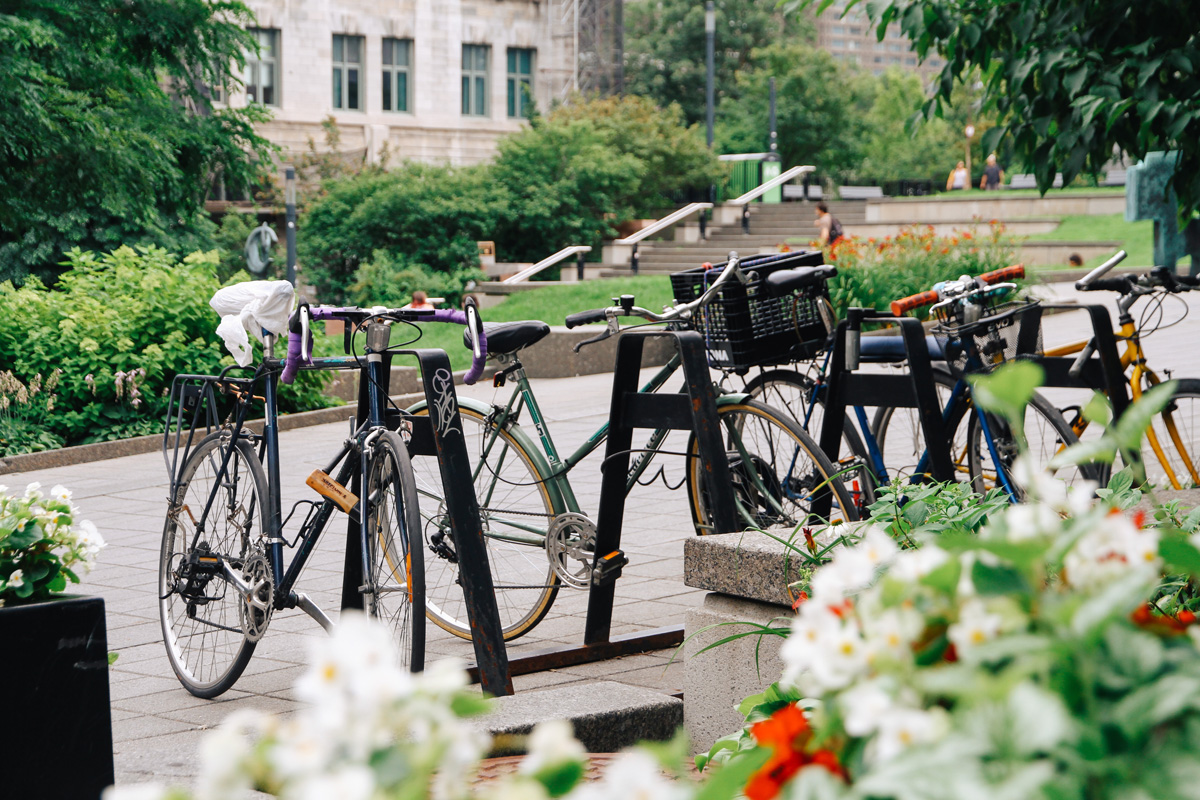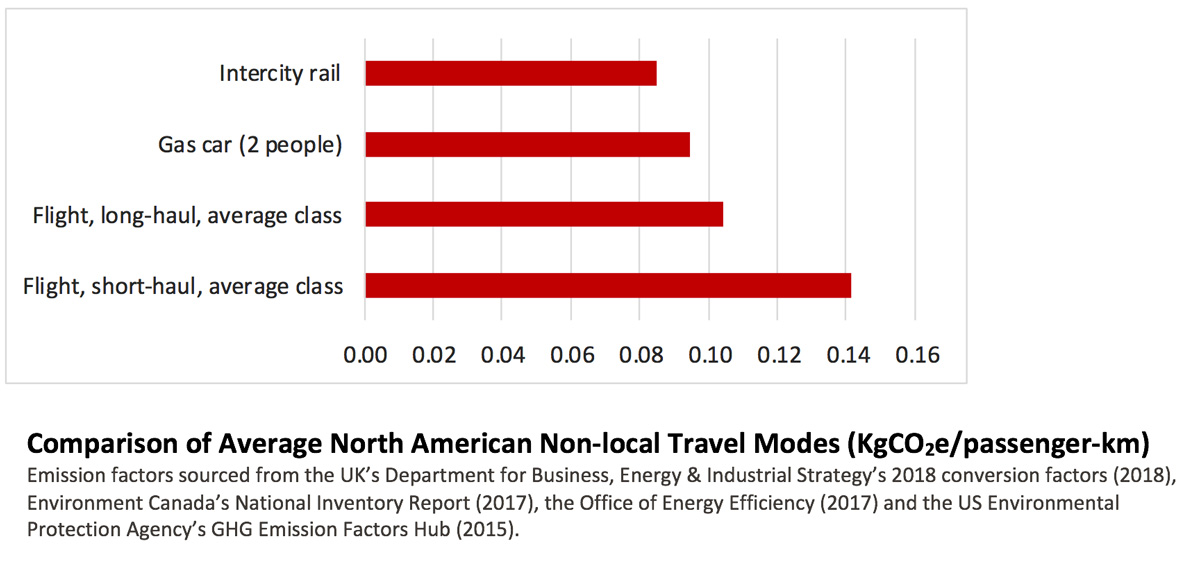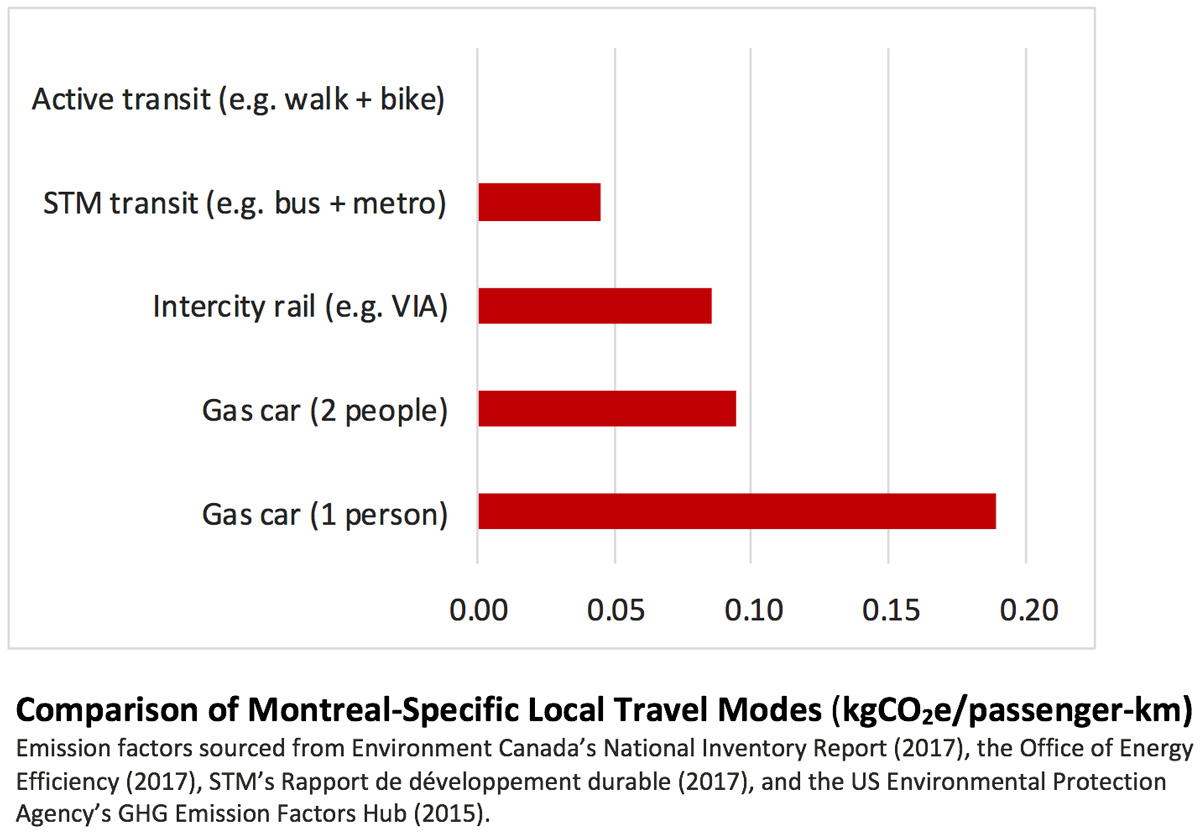
As a research-intensive university with two campuses, an international population and field stations from the tropics to the high arctic, McGillians travel far and often. However, the way we travel (and how frequently we do it) can have a massive impact on the environment and society in which we live. To help our community transition to more sustainable travel habits, McGill has produced a Sustainable Travel and Mobility Guide.
Drafted by the McGill Office of Sustainability, Procurement Services, and Utilities and Energy Management, in collaboration with students, faculty and staff, the Guide contains helpful tips and resources to help University travellers reduce some of the negative impacts from university-related travel and mobility by following a series of best practices.
To kick-start more sustainable habits, McGill is participating in the Défi sans auto: a Quebec-wide, no solo driving challenge organized by l’Association des centres de gestion des déplacements du Québec. From September 17 to 23, McGill is encouraging all members of the community to join in by commuting to the University by bus, bicycle, walking, carpooling, or any other means of sustainable transportation.
What is sustainable travel and mobility?
University-related travel refers to travel by students, faculty and staff for research, fieldwork, conferences, lectures, recruitment, meetings, events, and travel by our varsity sports teams. Local travel and mobility refers to commuting: the regular (and often daily) movement of our community members between their home and their place of work or study, as well as trips between our campuses.
To travel sustainably, one must take full account of present and future environmental, social, and economic impacts in local and host communities — from local employment and cultural heritage to greenhouse gas emissions and biodiversity loss. Not traveling as often, by utilizing teleconferencing technologies, for example, and switching short-haul flights with train and carpooling, are some of the ways one can travel more sustainably. The Sustainable Travel and Mobility Guide outlines several best practices for sustainable accommodation, as well.
Why travel sustainably?
“Together, travel and mobility contributed 26 per cent of McGill’s GHG emissions in 2017,” said Ali Rivers, McGill’s Climate Officer. “So we know that committing to sustainable travel will have a direct impact on our organizational carbon footprint. The Guide provides an awareness-raising and educational resource that is an important part of this process.”

Reducing our carbon footprint from travel is also part of McGill’s 2017-2022 Strategic Academic Plan. It states, “We will work with various sectors of the University to implement additional institution-level programs to facilitate individual and collective action to reduce the University’s carbon footprint, including reducing and/or offsetting carbon-intensive university travel.”
Provost and Vice-Principal (Academic) Christopher Manfredi reaffirmed this statement. “McGill aims to achieve carbon neutrality by 2040, an ambitious target,” he said. “We all have a role to play in this, particularly when we travel. The Sustainable Travel and Mobility Guide can help us make travel choices as sustainably as possible.”
Mobility (Commuting)
The most recent Transportation Research at McGill (TRAM) survey at McGill, conducted this year, found that there has been an increase in sustainable modes of transport compared with 2016. In fact, the survey found that active and public transport are the primary modes of transport for 91 per cent of commuters’ travel to McGill in fall and winter.
“The majority of students, faculty, and staff at McGill are already prioritizing sustainable transportation on their daily commutes—and they should be lauded for that,” said VP Administration and Finance, Yves Beauchamp. “I hope that McGill participating in the Défi sans auto will motivate those who might not ordinarily consider active transportation, like walking and biking, and public transportation to give it a try. Not only is this better for the planet, it’s better for your health and your wallet too. ”

To participate in the Défi sans auto, register on their website before September 17. Those who register are eligible to win a host of prizes, including 6 travel credits with Via Rail. While there are sections in English, the majority of the site in in French.
